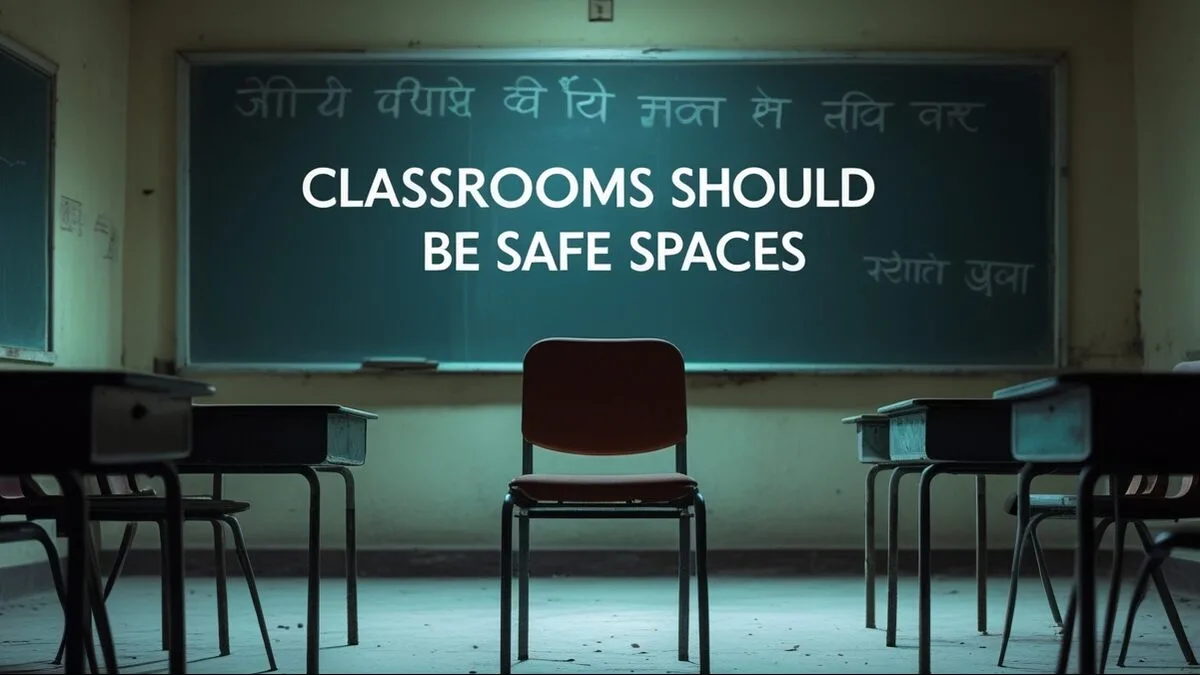
Classrooms aren’t just for learning — they must be safe, supportive spaces for every student. | © puneripages.in
By Prashant for PuneriPages.in
I never thought I’d be writing about something like this, but here we are. A teacher in a Pune school has been booked for making a deeply inappropriate and sexist remark to a Class 8 girl. This story isn’t just about one incident—it speaks volumes about the culture we’re allowing in our classrooms, and it left me shaken. If students can’t feel safe with the very people meant to guide them, what are we even doing?
Table of Contents
The Incident
According to the complaint filed by the student’s family, the male teacher said during a physical education class, “If girls exercise well, boys will propose to them.” Let that sink in for a moment. Imagine being a 13- or 14-year-old girl, hearing that in front of your classmates. Instead of encouragement or guidance, you get reduced to how attractive you are to boys. That’s not just a poor choice of words; that’s a failure in basic decency.
The police have booked the teacher and launched an official investigation. For the sake of the student’s mental well-being and privacy, we won’t be naming her, the school, or giving away any identifiable details. This is about protecting her first.
Why This Matters
Teachers aren’t just people with a syllabus to finish. They are mentors, role models, and in many ways, guardians during school hours. When one breaks that trust, the emotional fallout is hard to measure. It’s not just about one girl; it’s about every student who might now think twice before speaking up, or who might carry that comment in her mind for years.
Psychological Impact on Students:
To get some perspective, I spoke with Dr. Rachana Mehta, a child psychologist. She said something that stuck with me: “Comments like these from authority figures can permanently alter a young girl’s relationship with her body and her self-worth. They plant seeds of shame.” At that age, kids are still figuring out who they are. They shouldn’t have to deal with objectification disguised as casual remarks.
Legal and Institutional Implications:
Advocate Sneha Kulkarni, a lawyer and women’s rights activist, helped break down the legal side. “Even if POCSO doesn’t directly apply, the statement clearly qualifies as verbal sexual harassment,” she said. “An FIR being filed means this isn’t just a warning slap. It’s a formal step in the legal process.”
She also pointed out the glaring lack of accountability frameworks in many schools. “Teachers aren’t above consequences. Institutions must have codes of conduct and mechanisms to act swiftly when they’re breached.”
What Schools Should Be Doing (But Often Aren’t):
Honestly, it shouldn’t take something like this to push schools into action. But since it has, here are a few non-negotiables every school should implement:
- Mandatory Gender Sensitization Workshops for all teaching and non-teaching staff
- Anonymous Reporting Channels so students feel safe coming forward
- Immediate Suspension Protocols when teachers are accused of misconduct
- Ongoing Teacher Training on student psychology and respectful communication
Where Is the School in All This?
So far, there hasn’t been a public statement. From what I’ve gathered, an internal inquiry is happening, and the teacher has been temporarily pulled from classroom duties. But that’s the bare minimum. The community deserves transparency and the student deserves visible support.
Conclusion:
Writing this made me angry, but also hopeful. Because the fact that the family spoke up, and that people are listening, means the silence is breaking. This isn’t just about a bad teacher. It’s about calling out a mindset that still lingers in too many schools, homes, and institutions.
To that brave Class 8 student: you did something most adults struggle with. You stood up for yourself. And in doing so, you stood up for many others too.
Let’s use this moment to push for safer, more respectful schools—not just in Pune, but everywhere.






